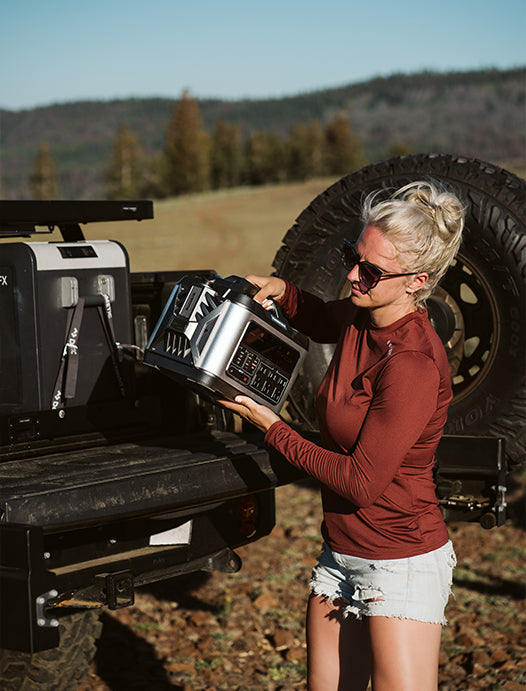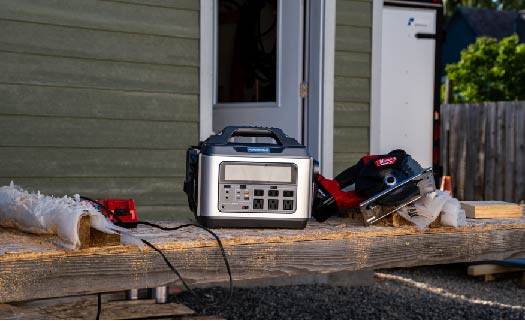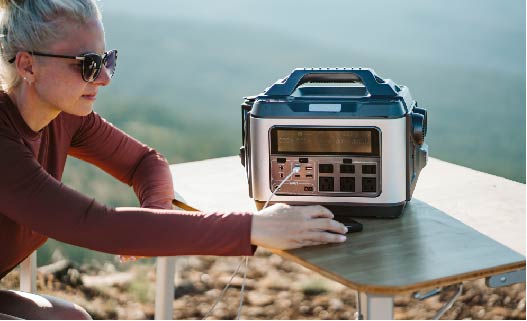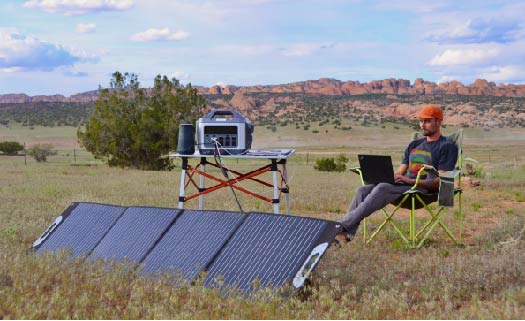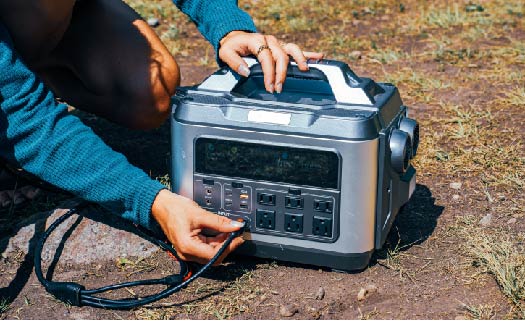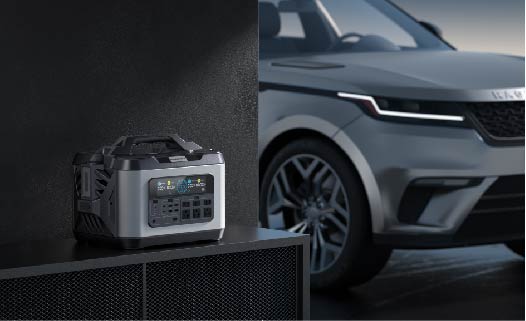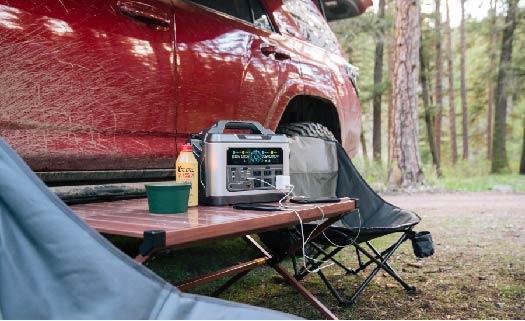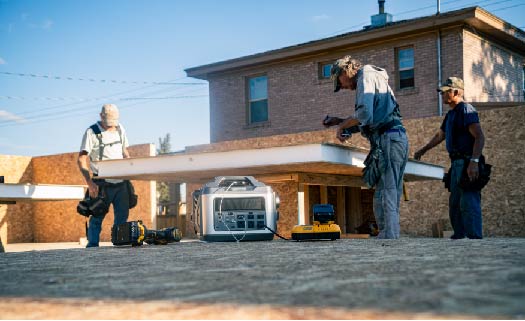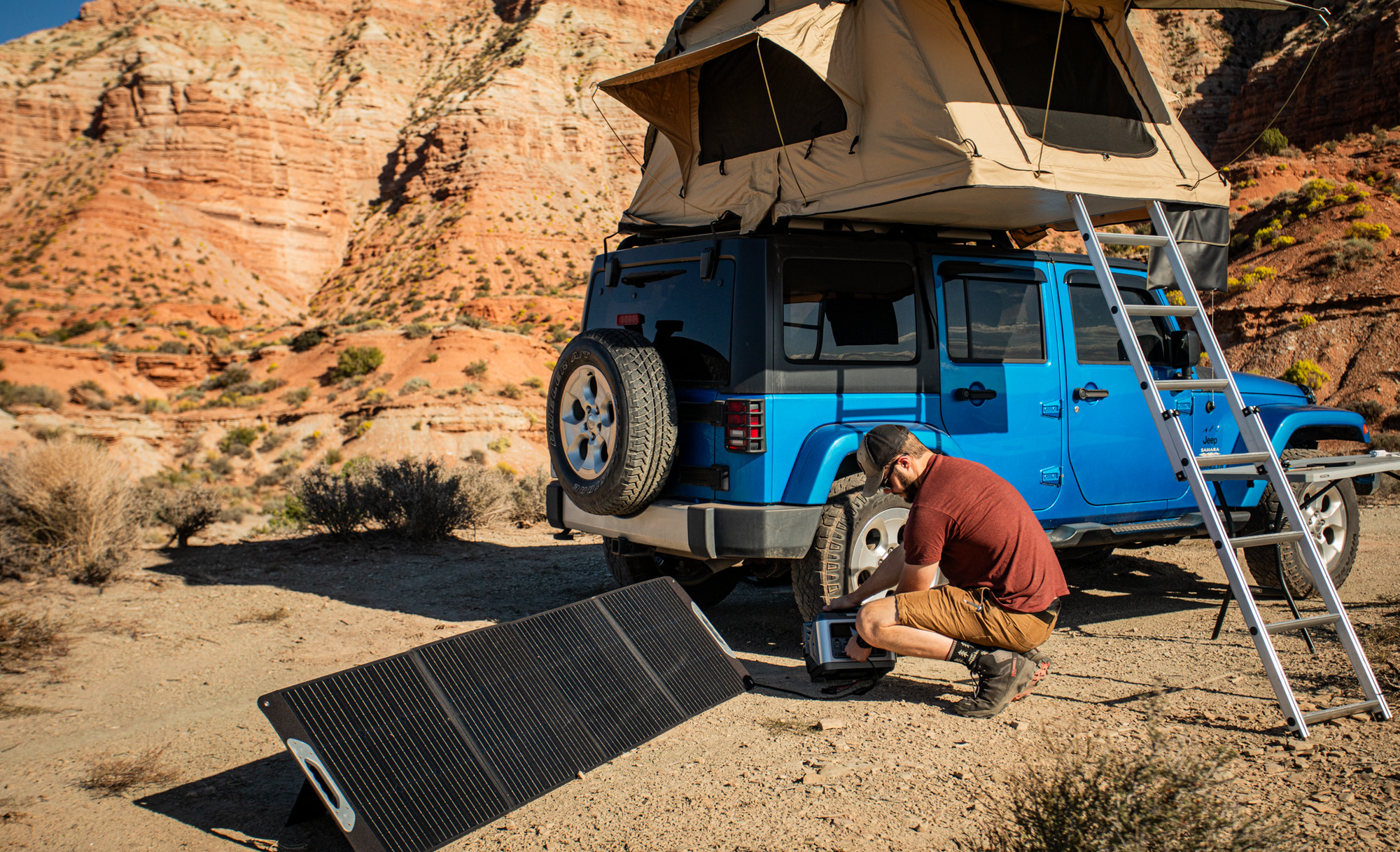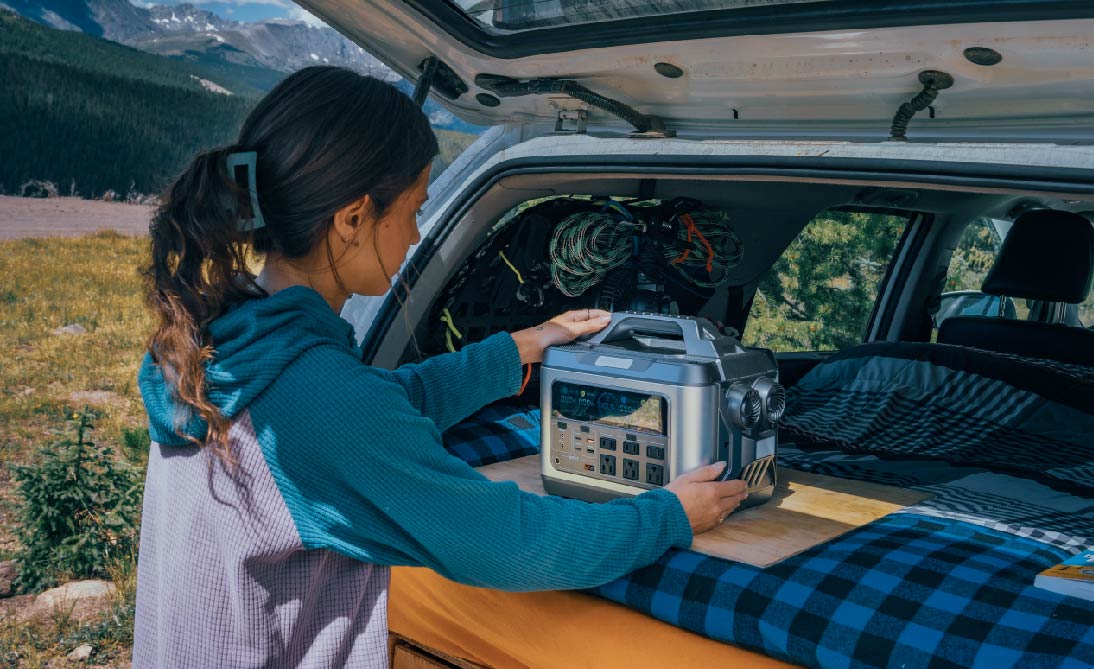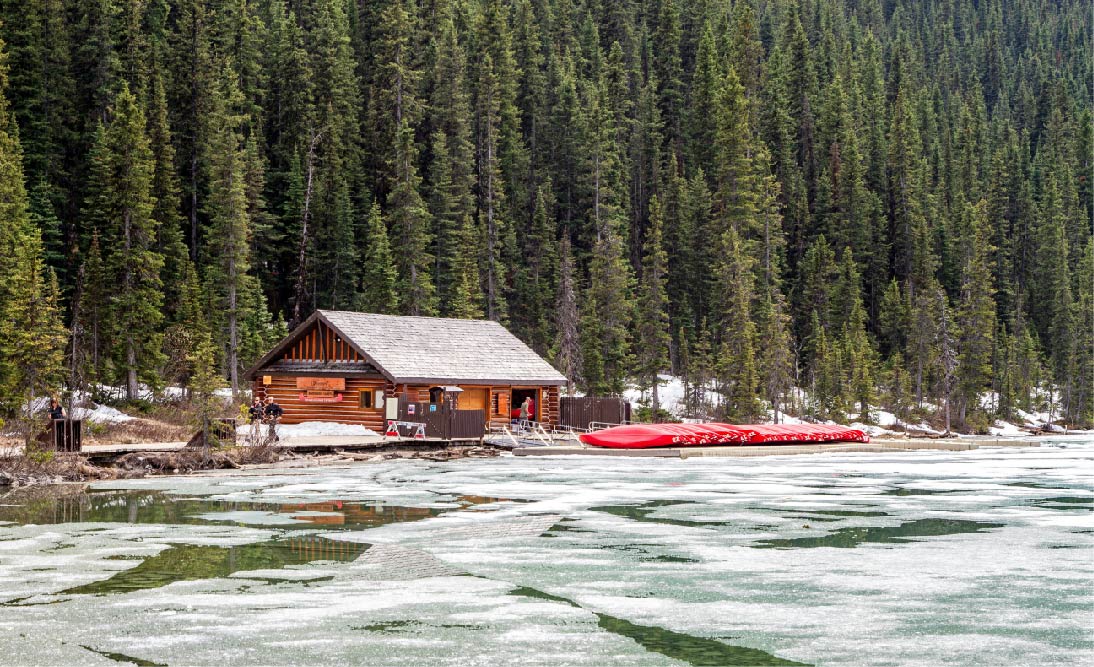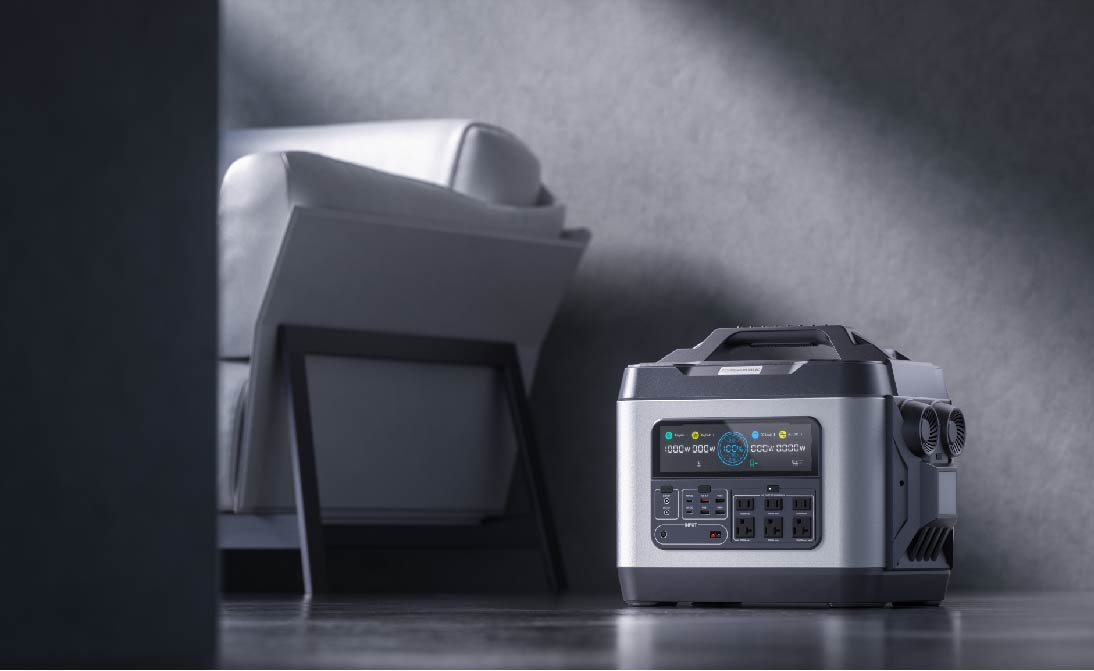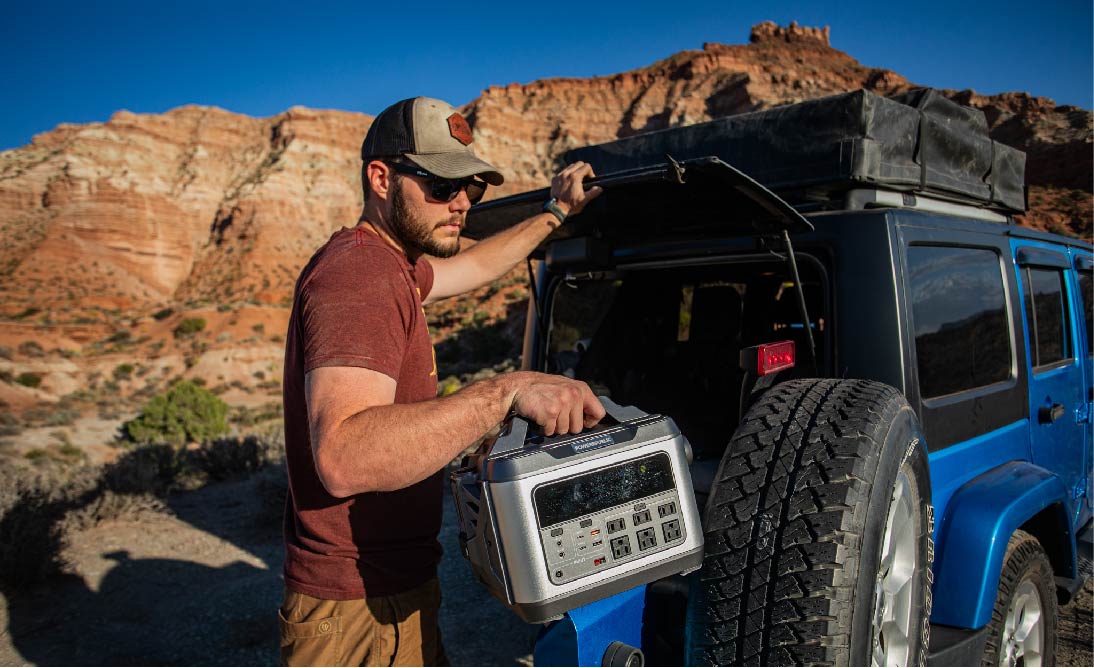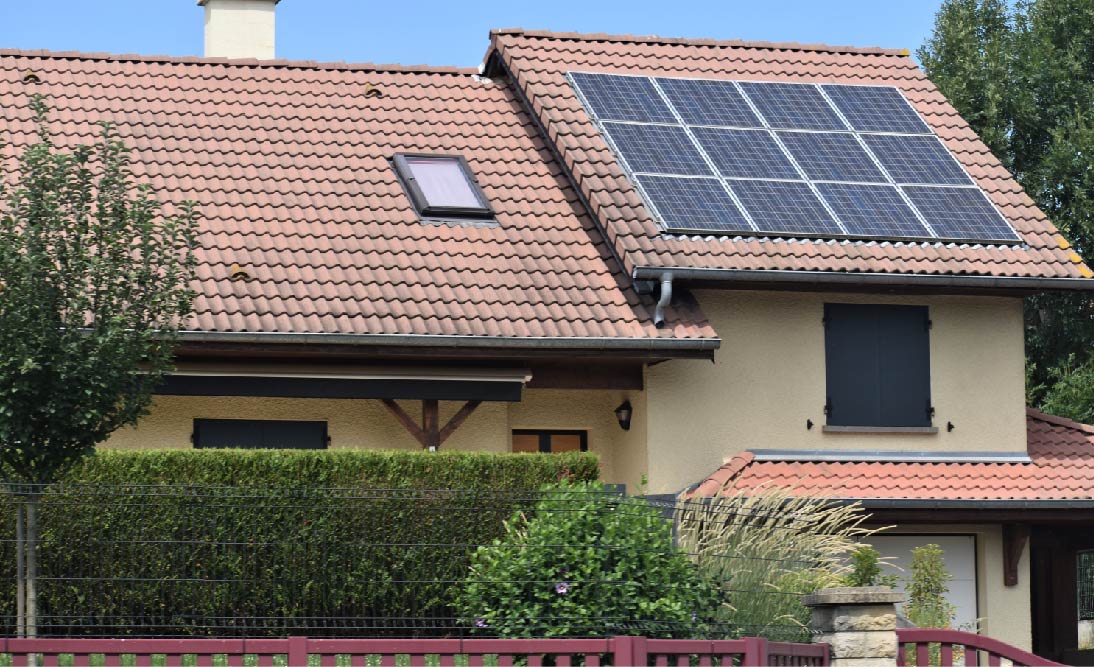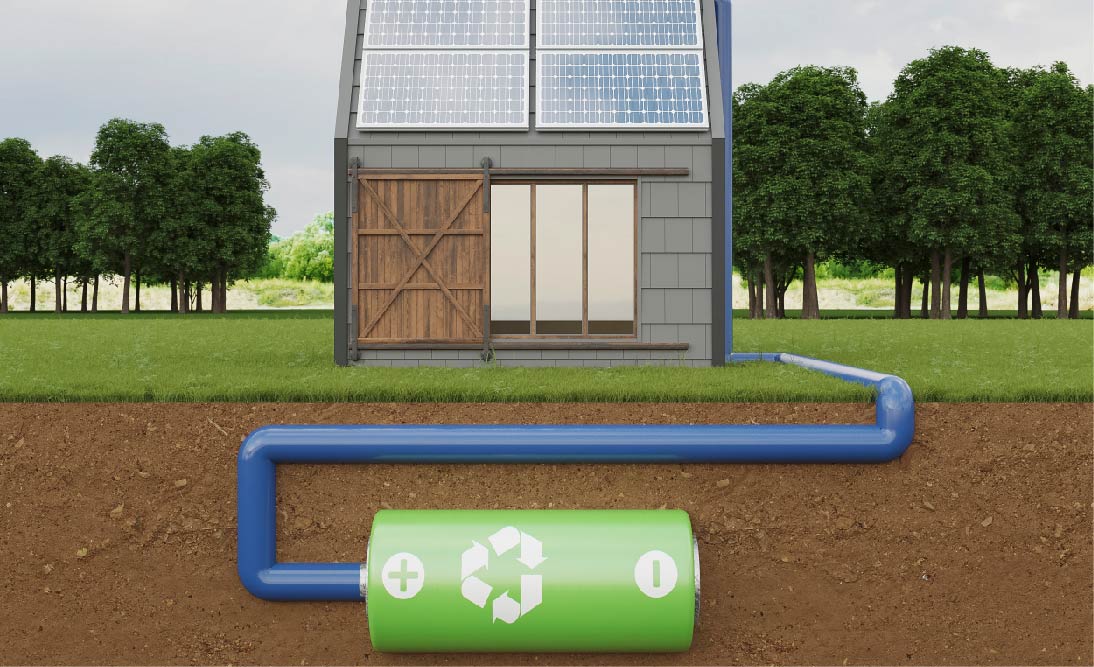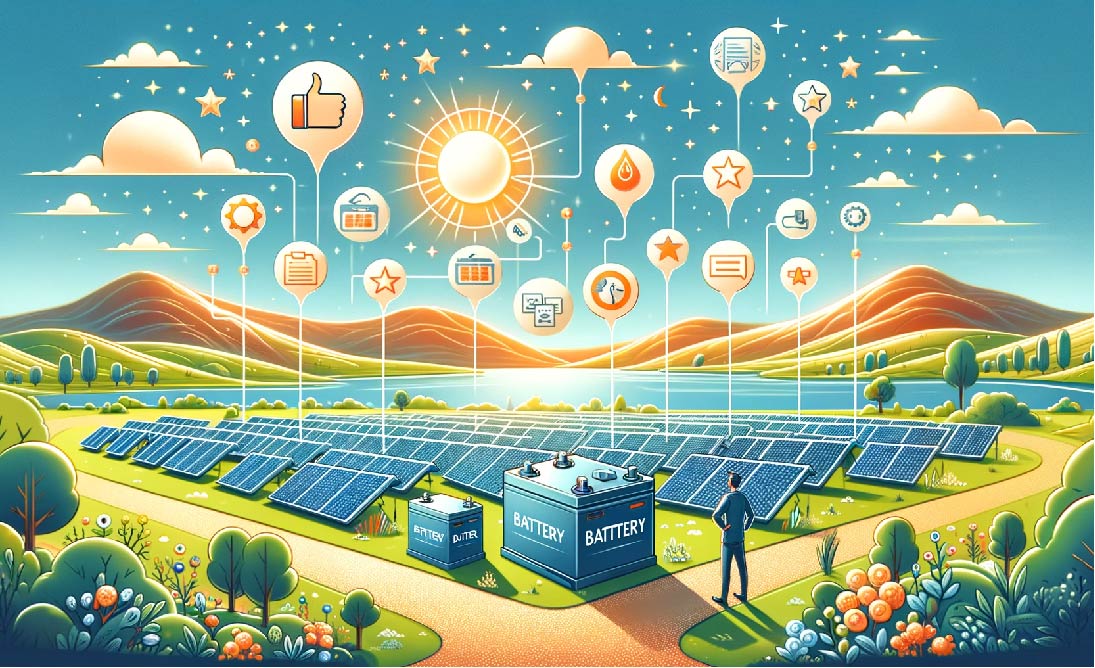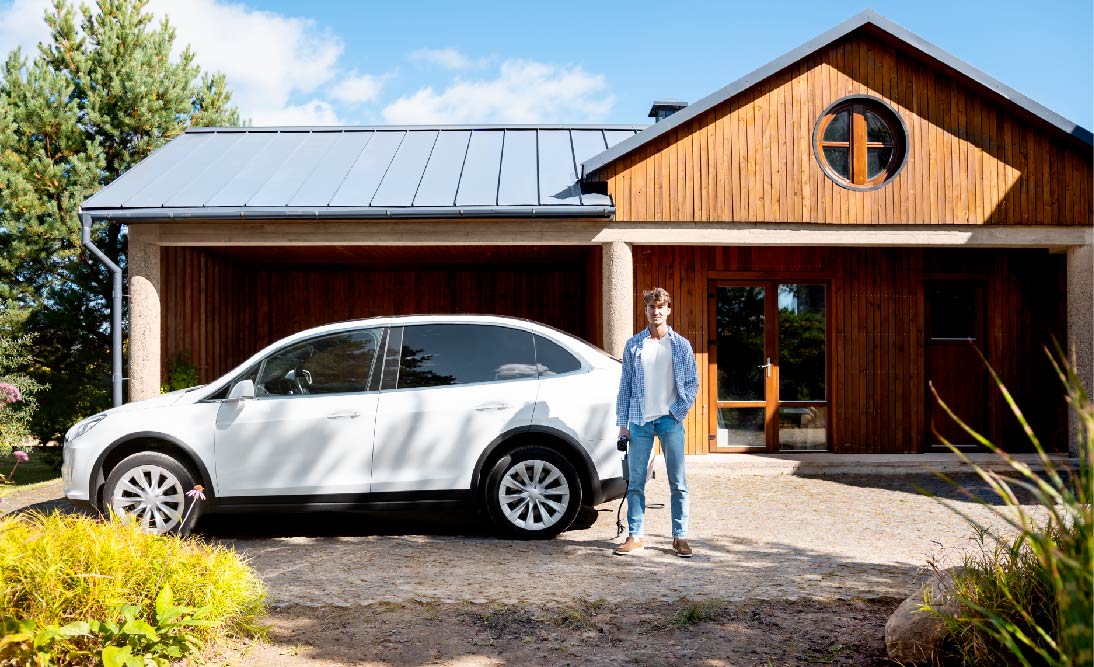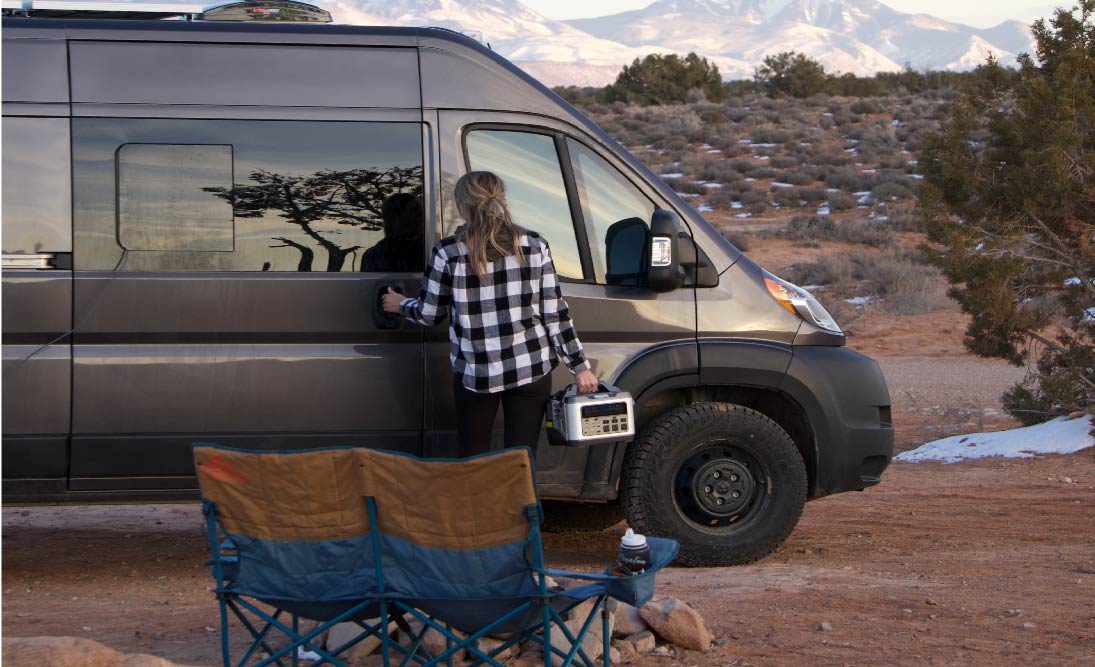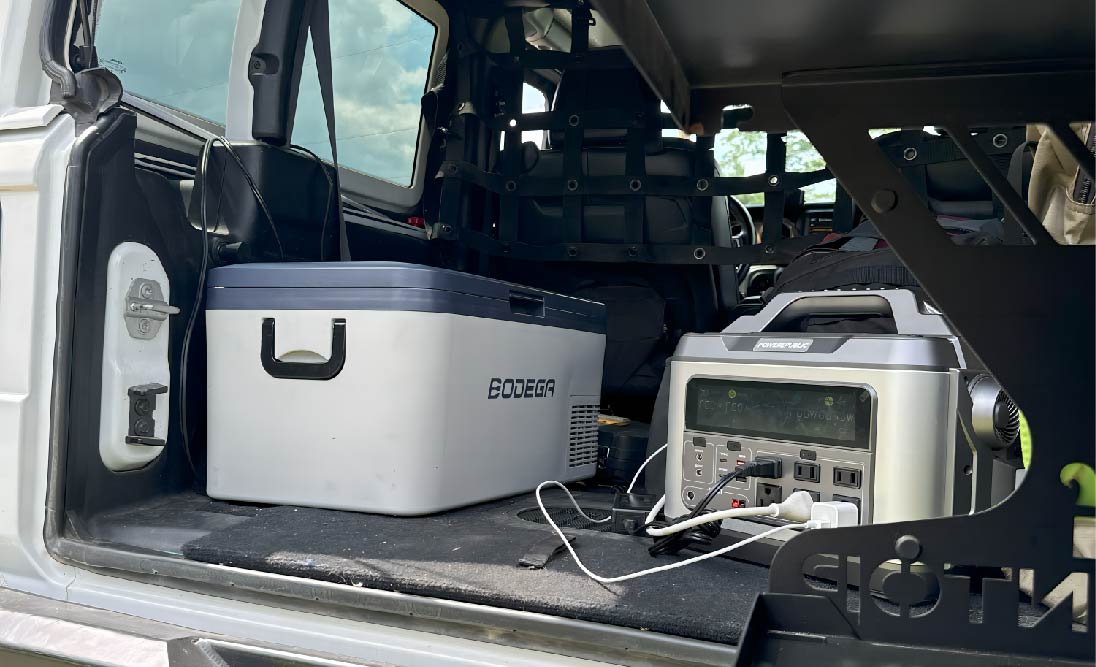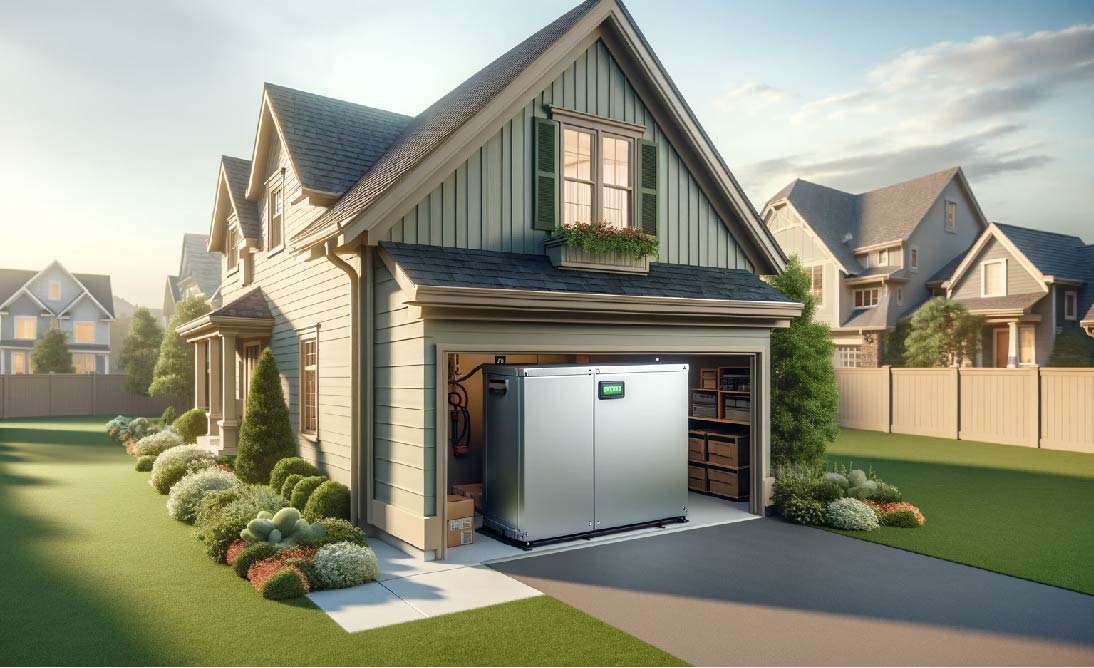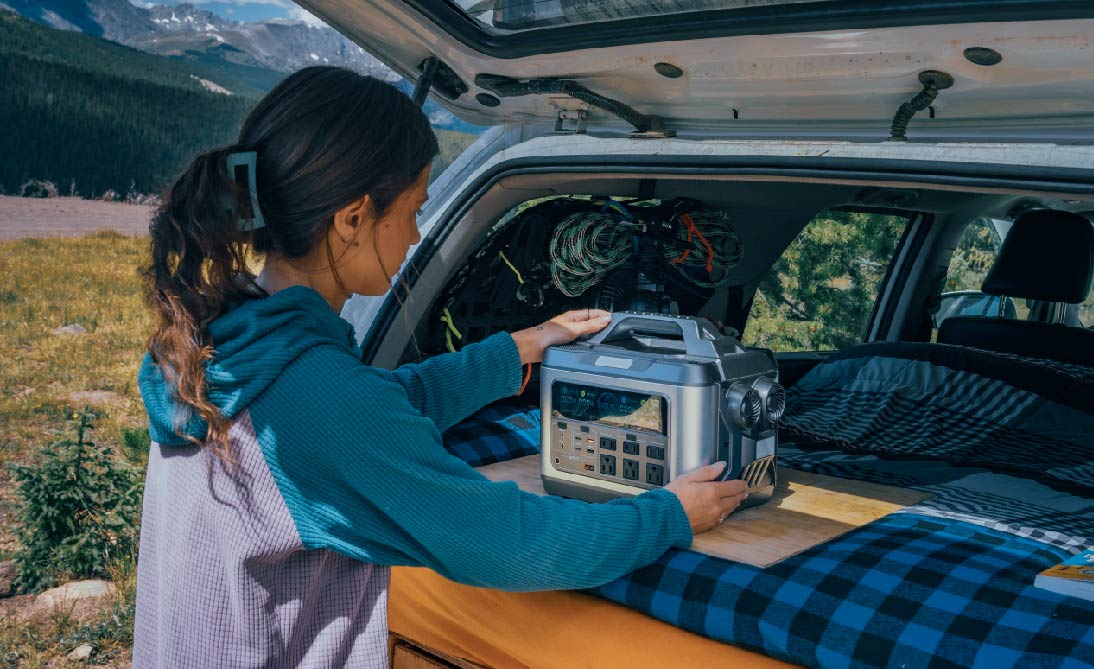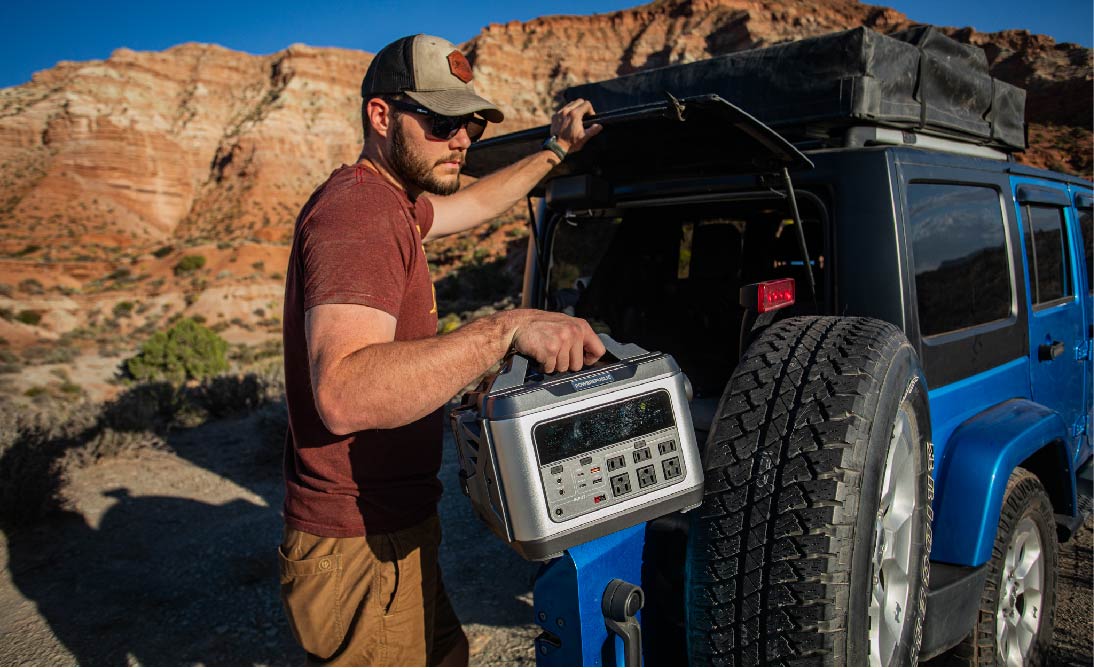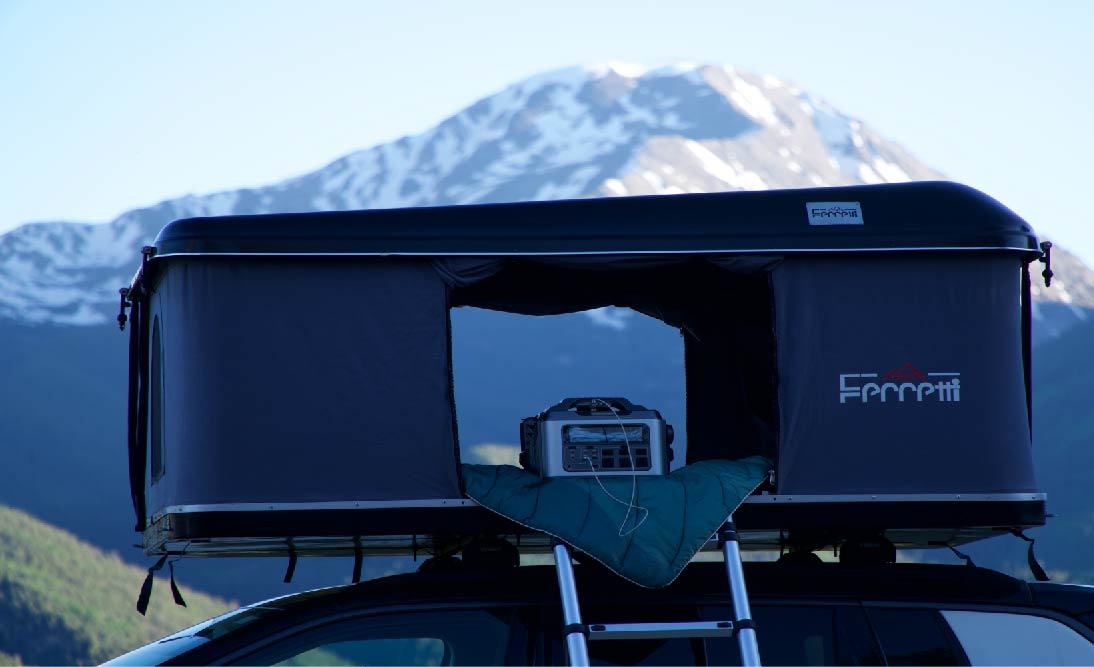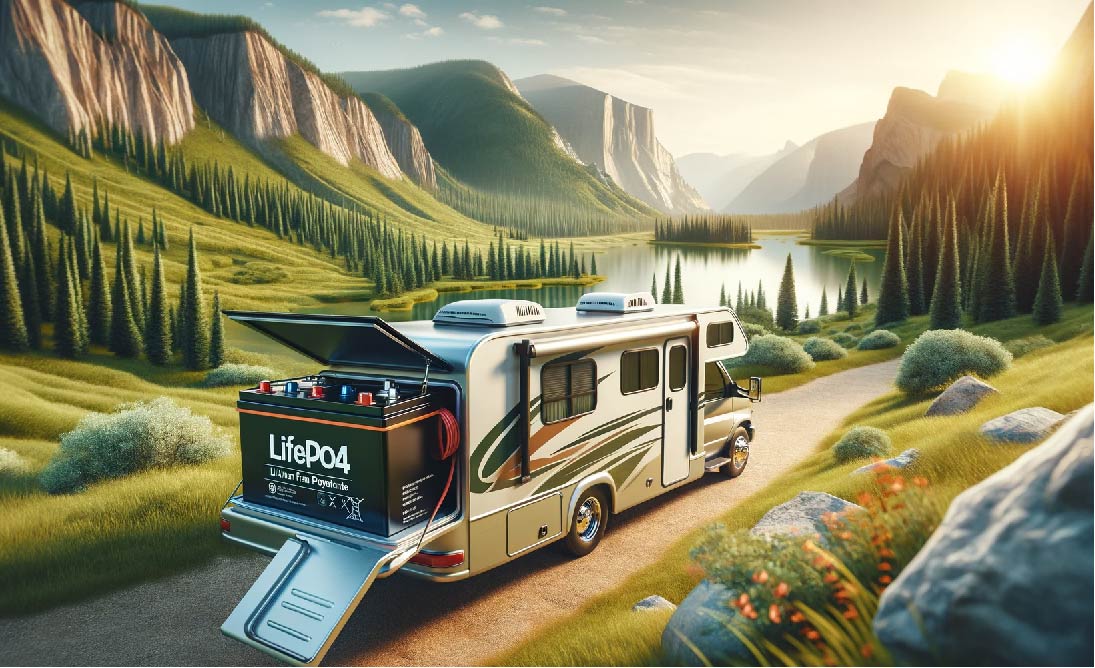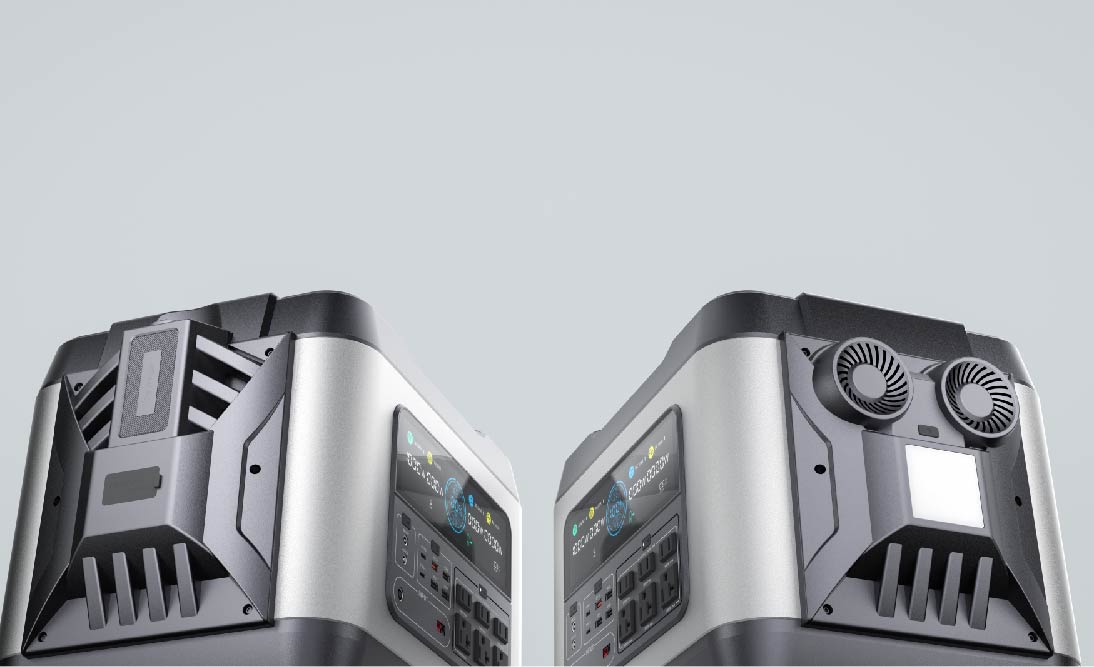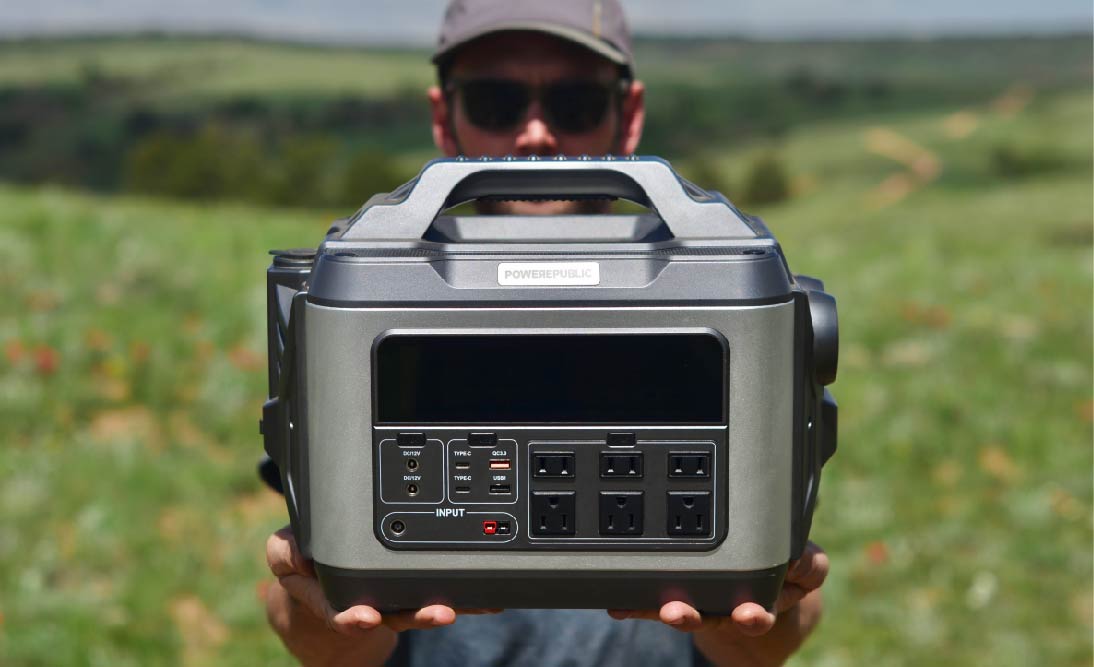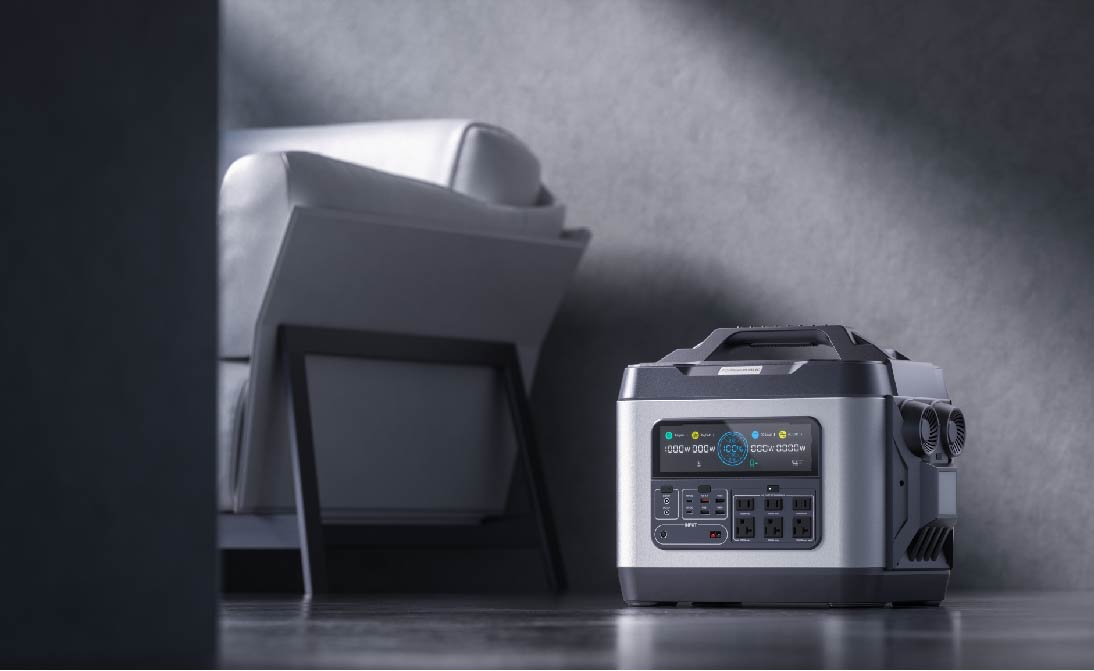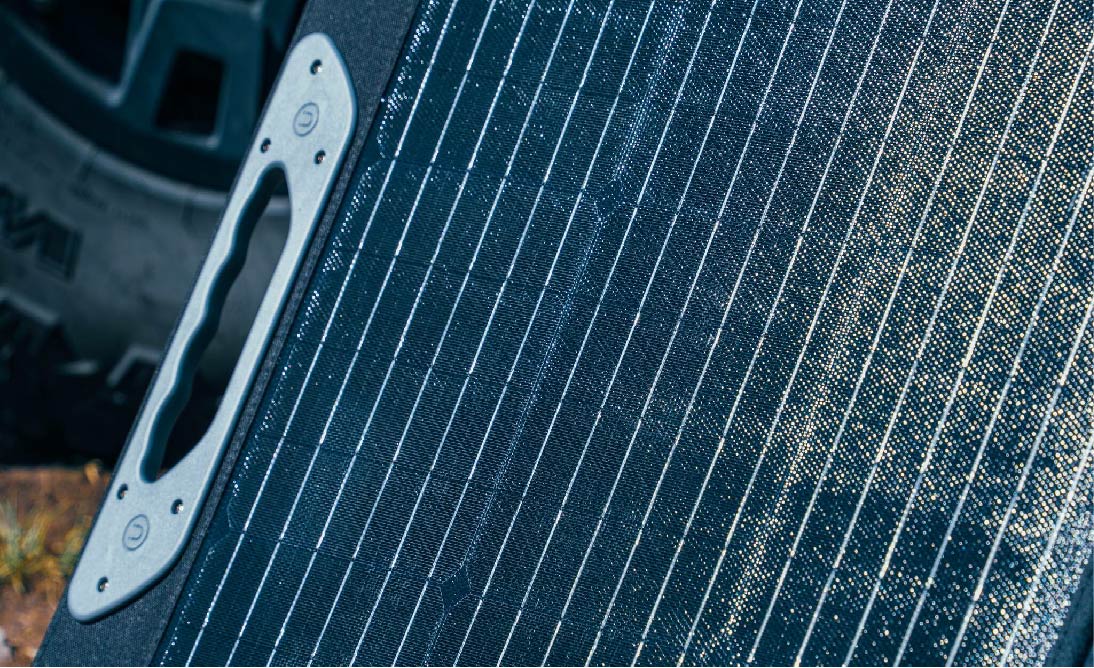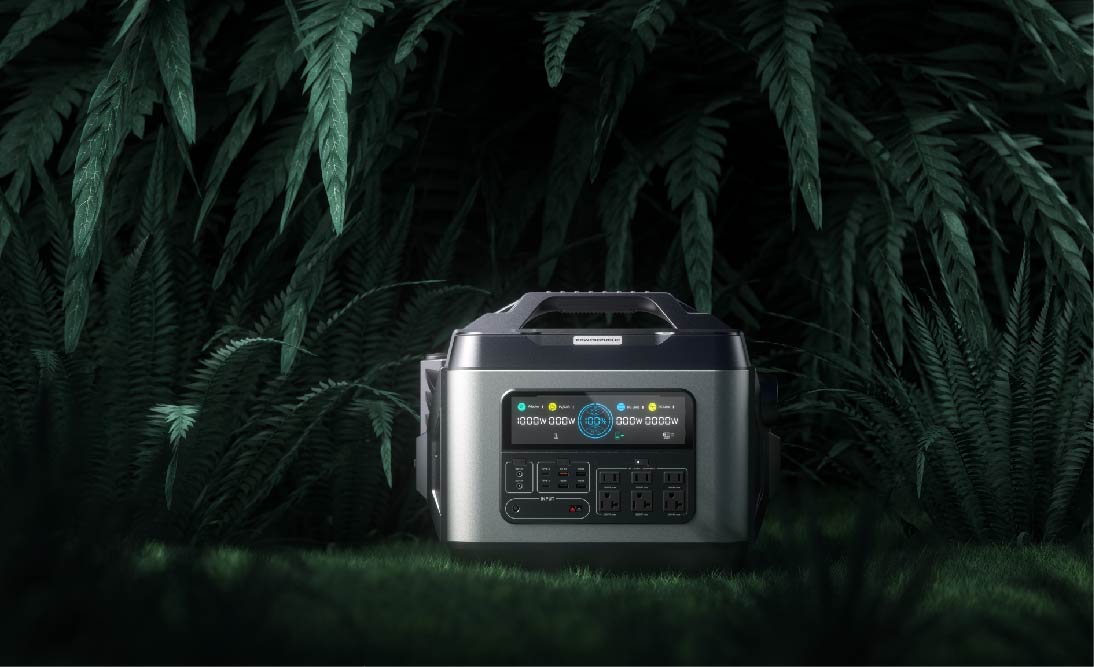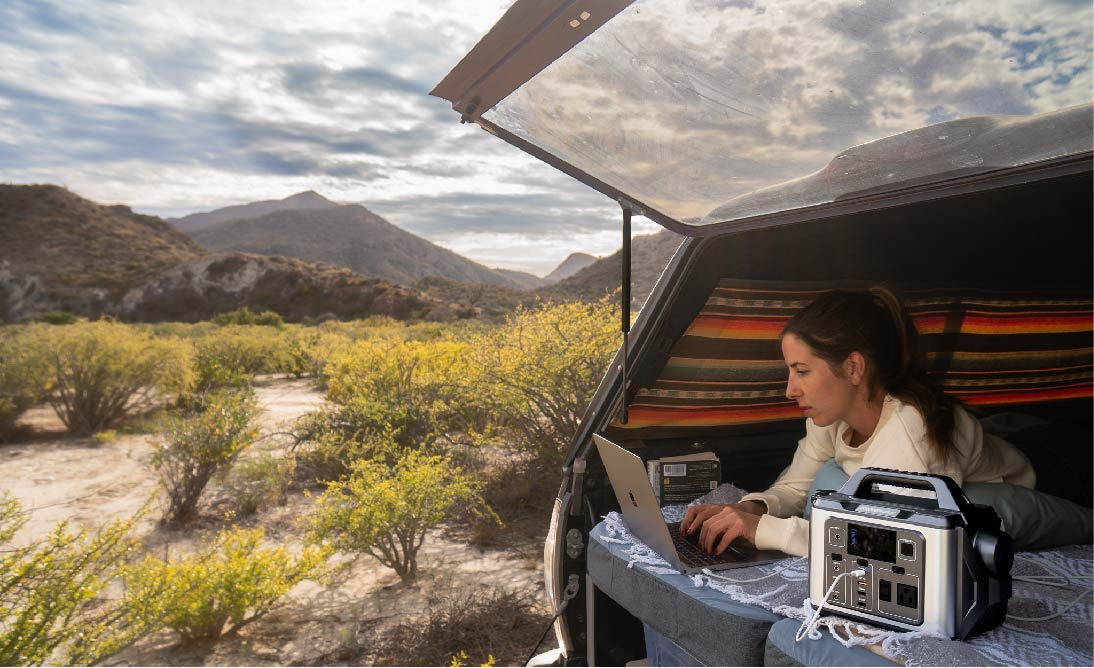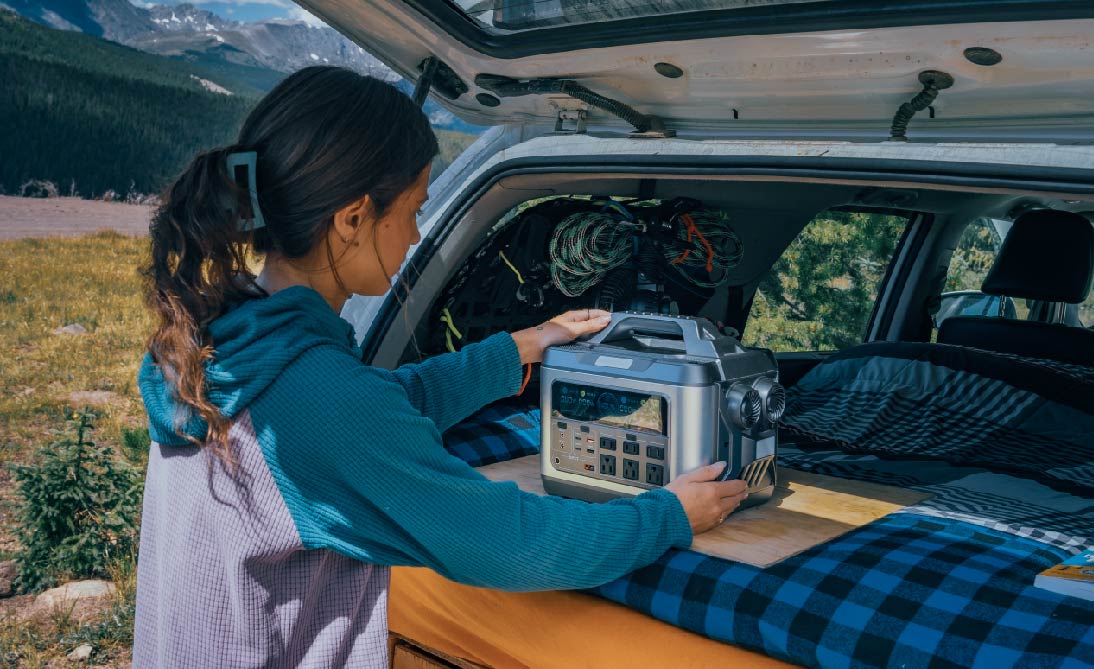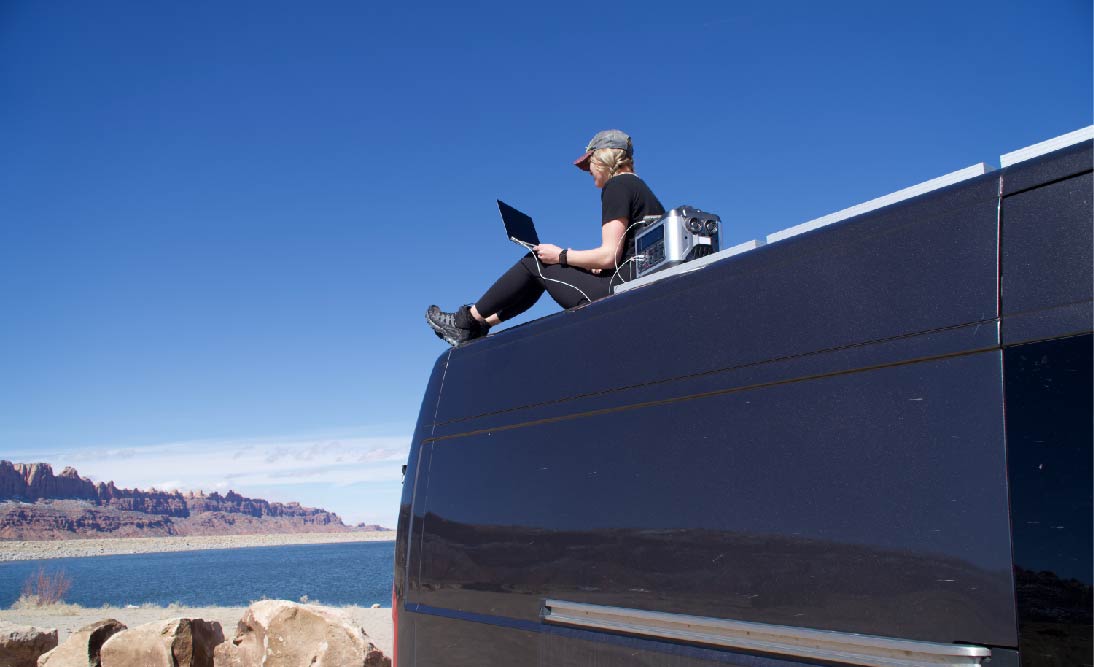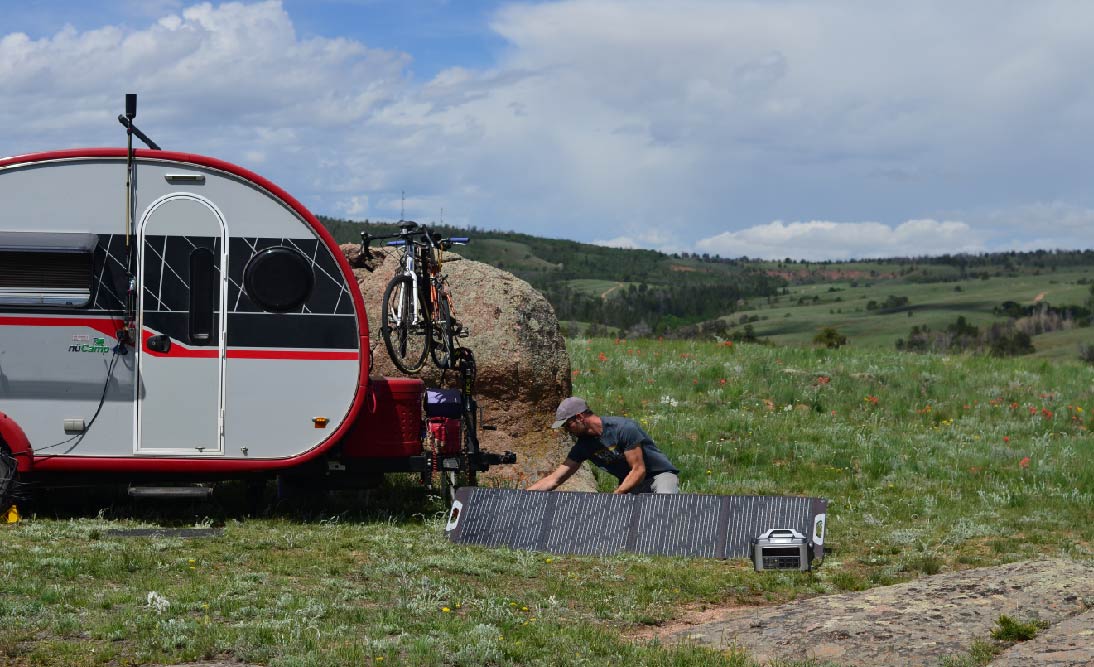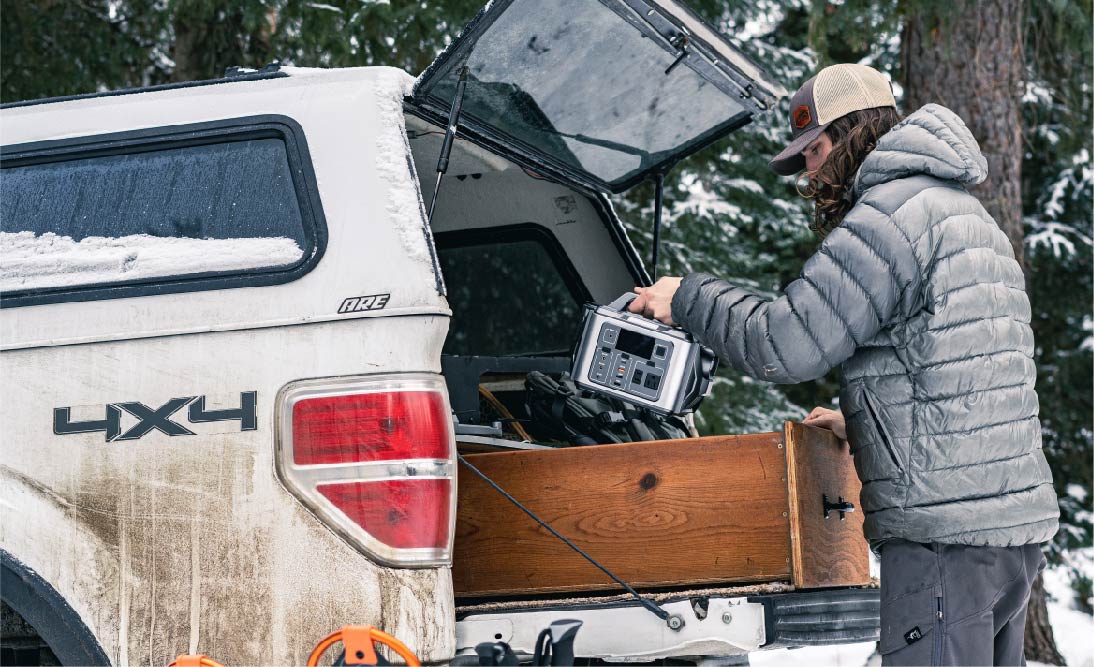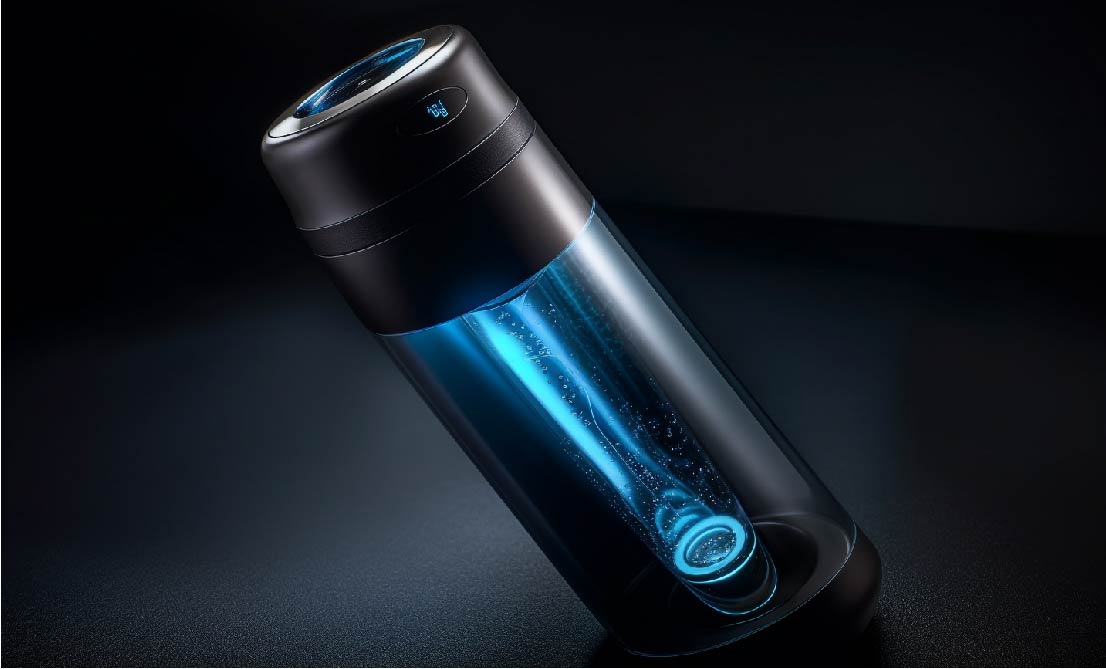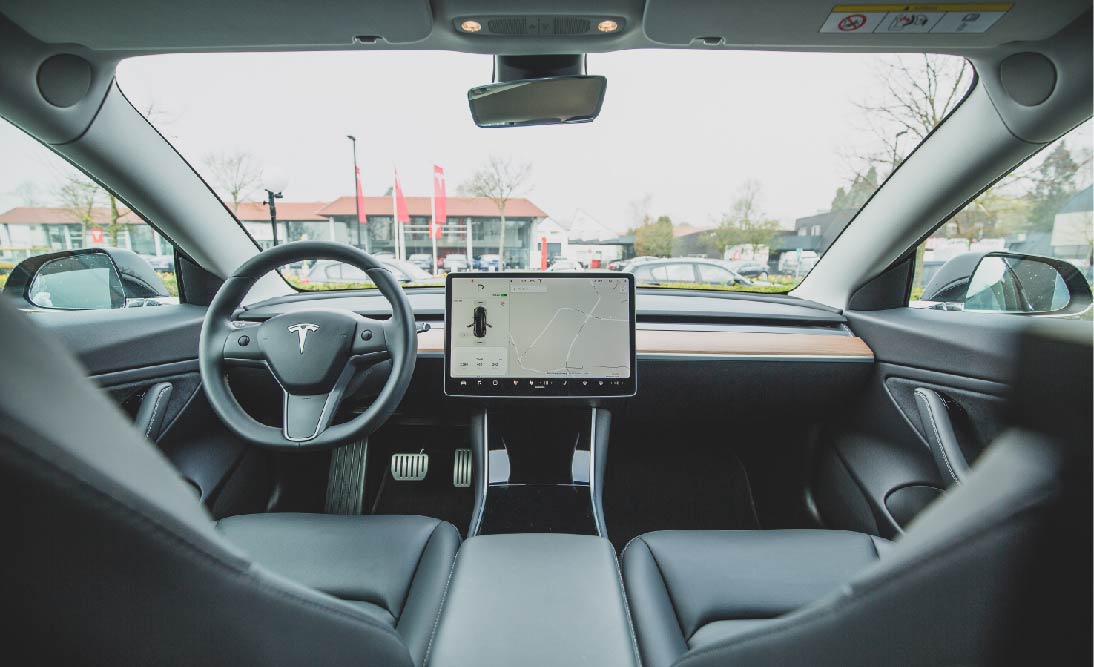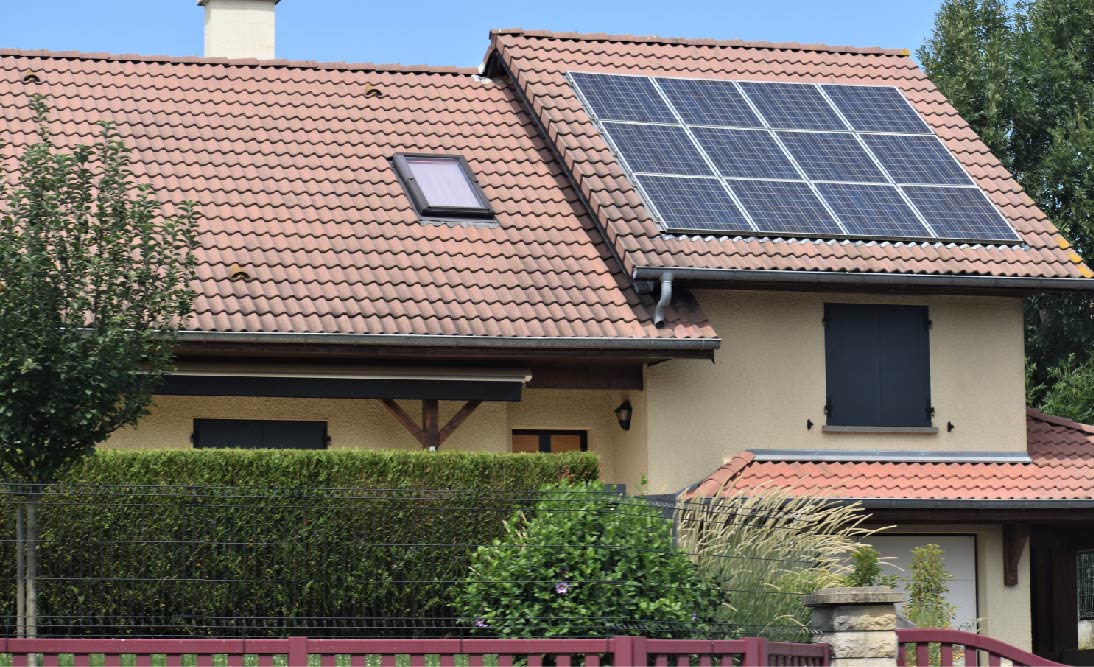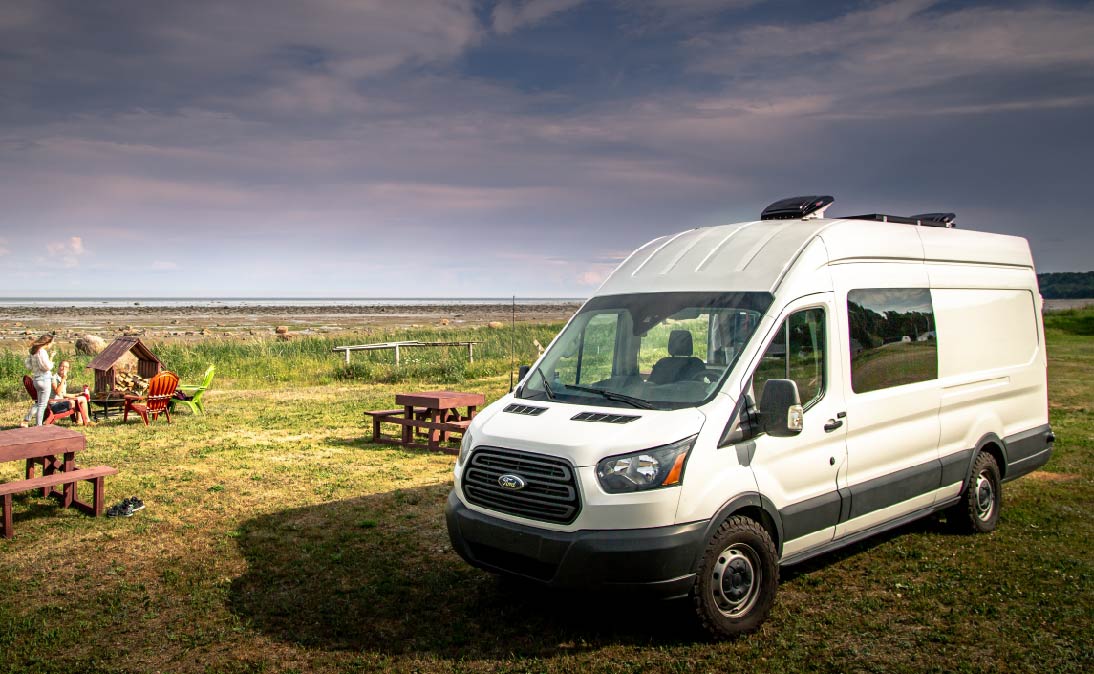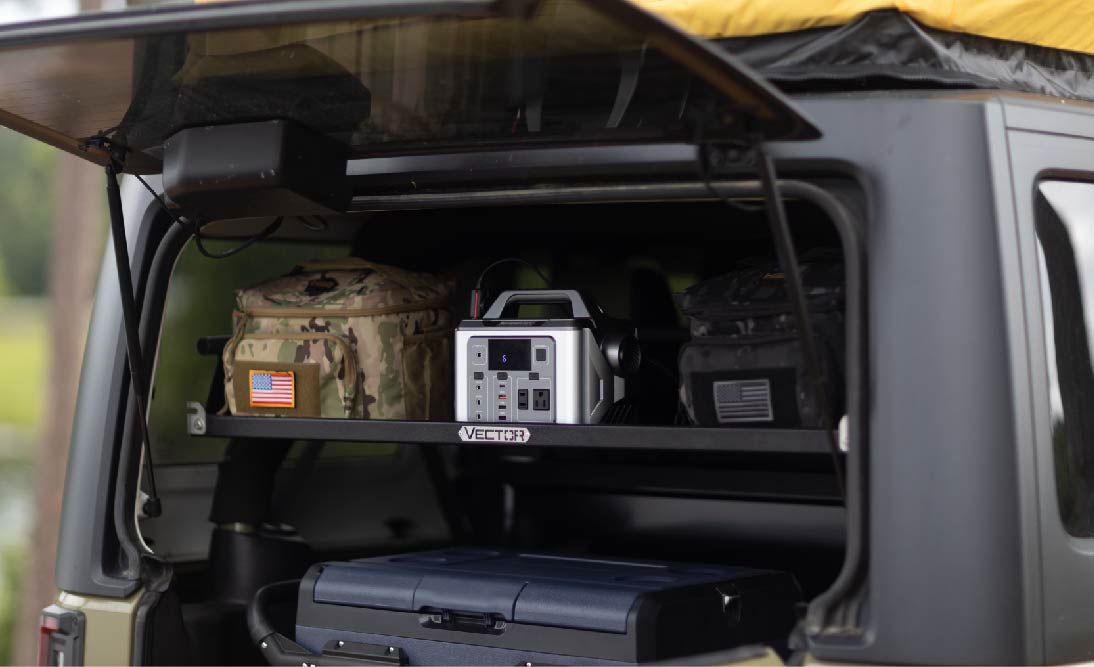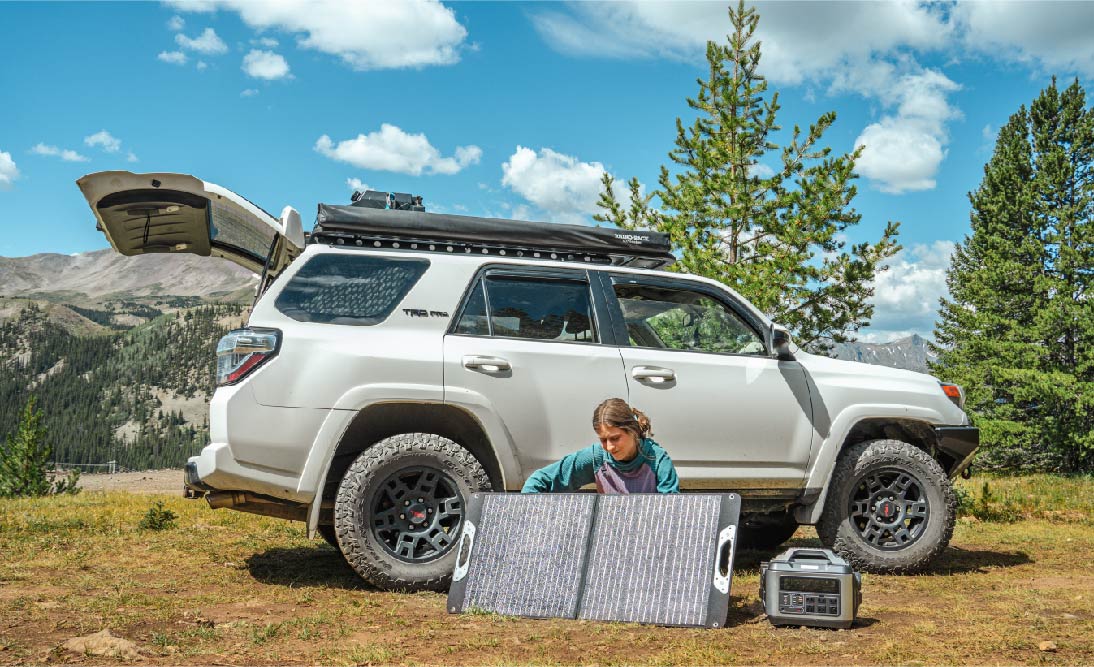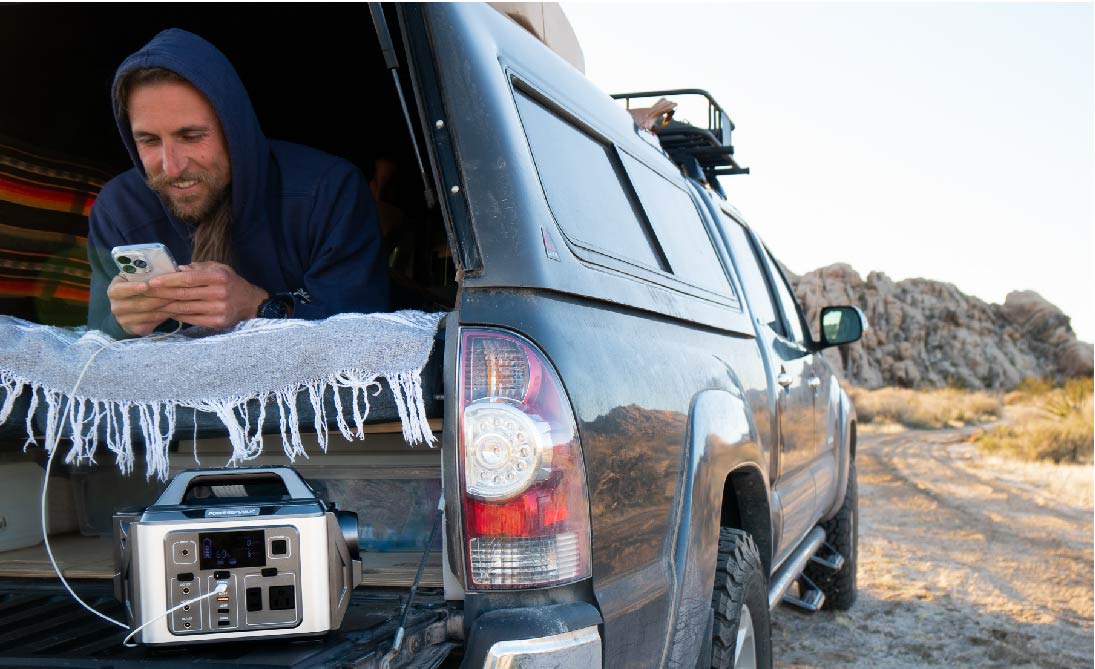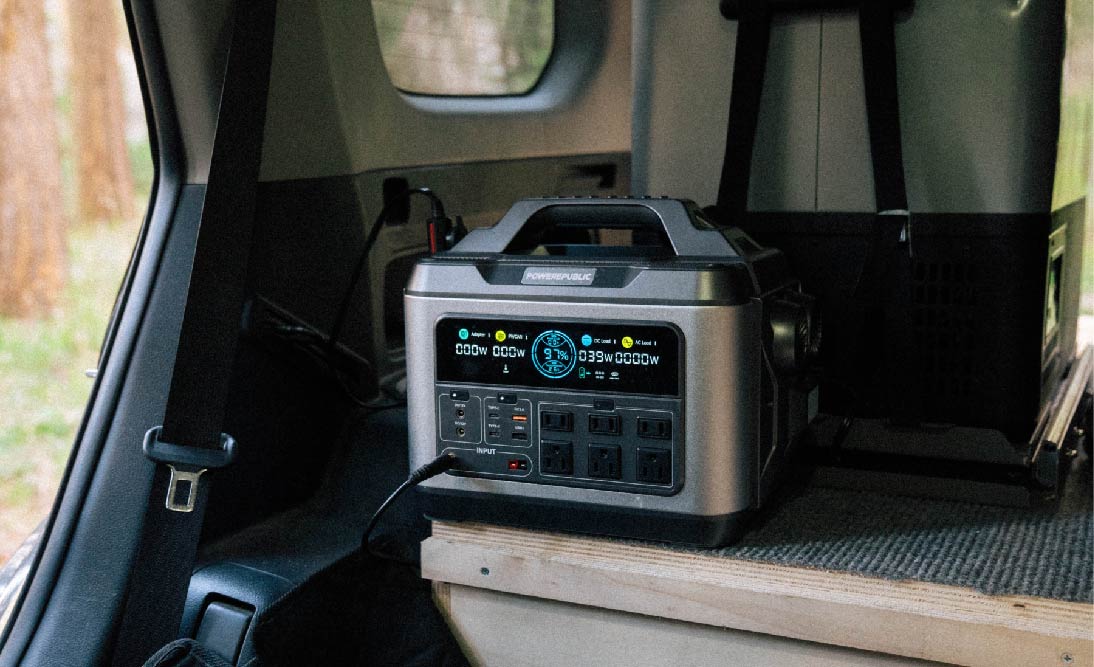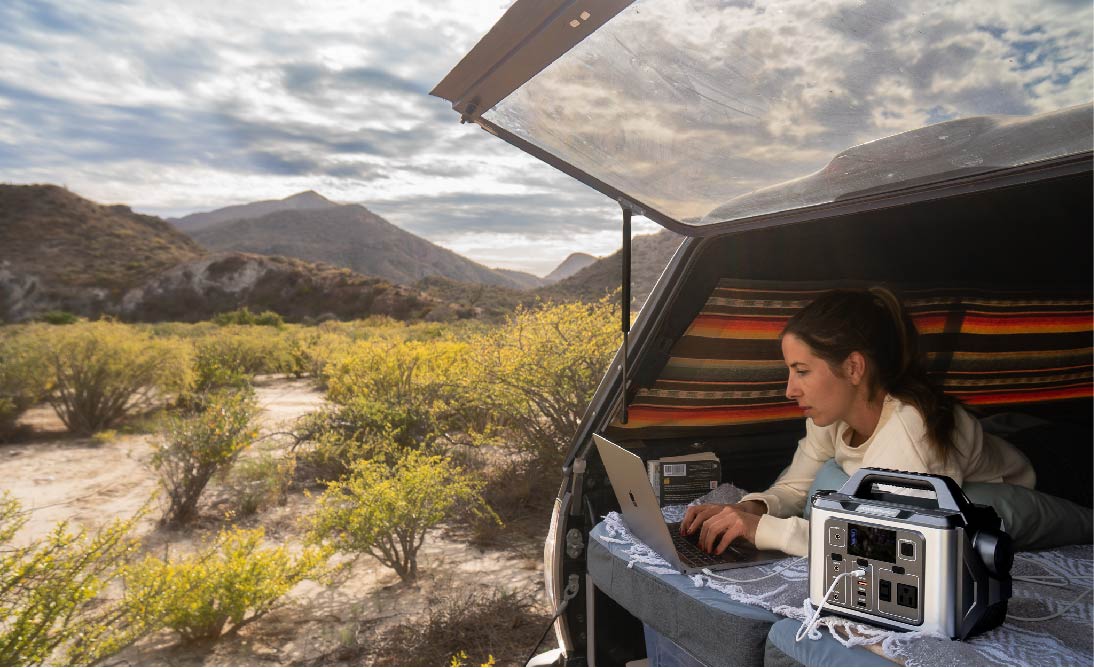Table Of Contents:
Can you keep your RV cool using solar power for the air conditioner? Yes, it's possible, but it depends on several factors: how long you want the AC to run, the size of your inverter, the capacity of your RV's solar panels, the strength of your battery, and your budget.
Traditionally, RVers relied on generators or plugging into campground power to run their AC units. However, advancements in battery and solar technology have made it feasible to solely power an RV air conditioner with solar and batteries.
But before we get into the details, it's essential to understand the challenges involved. Air conditioners require a significant amount of power, and standard RV batteries can't sustain them for extended periods. Solar panels also need to generate electricity to both operate the AC and recharge the batteries for nighttime use. Therefore, a well-designed battery and solar system are critical for success.
In this article, we'll talk about the possibility of using RV solar panels to power your air conditioner. So let's get started!
Knowing Your RV Lifestyle First

Installing solar panels on your RV has many benefits. Unlike noisy and fuel-dependent generators, solar power is clean and silent, saving you money on fuel costs.
These solar panels can charge your RV's batteries, allowing you to use appliances while on the move without needing to plug in. This also prolongs your battery life as they are not constantly depleted.
Solar power opens up more camping possibilities, letting you venture off-grid to remote locations without worrying about power sources.
RV Solar panels require minimal maintenance, typically only needing occasional cleaning. This is even easier for portable solar kits that aren't permanently fixed to the roof.
So, if you're wondering how to power your RV's AC without a generator, solar power is the solution.
Consider Your RV Lifestyle:
-
Weekend Explorer: If you use your RV for short trips or weekends, a full solar system may not be cost-effective. Check out the POWEREPUBLIC solar generator kit.
-
Boondocking Adventurer: If you camp in power-free areas for extended periods and need your electricity, investing in a complete RV solar system with panels, a battery, inverter, charge controller, and wiring is a wise choice. Explore POWEREPUBLIC solar kits.
-
Full-Time RVer: If you live in your RV full-time and stay at campgrounds or RV parks with power, portable solar panels may suffice.
Remember, it all depends on your RVing style!
Components Of The Solar System And How Do They Work?

To effectively power your RV's air conditioning with solar energy, you need to consider and properly size three essential components: solar panels, inverters, and batteries. Let's break down how these parts work:
RV Solar Panels
Solar panels installed on your RV's roof or in portable suitcases capture energy from the sun and convert it into electrical power. Solar panels work best when exposed to direct sunlight. To run an RV air conditioner, you typically need about 1,800 watts to start it and 650 watts per hour to keep it running.
If your RV has plenty of roof space, you can go for 16 x 100-watt solar panels to meet these energy needs. However, if space is limited, consider larger, high-efficiency solar panels commonly used in homes. Brands like Renogy offer high-efficiency solar panels designed to power air conditioners efficiently.
Inverters
Inverters are crucial in your RV's solar power system. They convert the direct current (DC) produced by solar panels and stored in batteries into alternating current (AC) used for RV appliances, including the air conditioner. To power an RV air conditioner, your inverter needs to handle both the initial power surge when starting the AC and the continuous power while it runs.
Typically, an RV air conditioner needs about 3,000 watts to start up. Therefore, it's recommended to invest in an inverter with a capacity between 3,500 and 4,000 watts for comfortable operation. You might also consider using a soft starter, reducing the initial power surge by over 50%. This allows you to use a smaller inverter to power your air conditioner. Another option is to start the AC with generator power briefly and then switch to solar power to reduce the initial strain on your inverter.
Batteries
Your battery bank is crucial to ensure your RV's air conditioning system runs smoothly. While more solar panels generate more power, it's equally important that your batteries can efficiently store and provide that energy. If your batteries can't hold the energy produced by RV solar panels, it goes to waste. Thus, you must have an appropriately sized battery bank to meet your air conditioner's energy demands.
For instance, running an air conditioner for 8 hours solely on battery power requires many batteries. This could mean around 16 to 20 flooded, deep-cycle batteries, each with 100 ampere-hours (AH) capacity, to power two air conditioning units. Alternatively, you would need about 8 lithium batteries, each with a 100 AH capacity, to achieve the same goal.
Properly sizing and configuring these essential components will enable you to create an efficient and reliable solar-powered RV air conditioning system. This setup allows you to enjoy a comfortable environment while minimizing your environmental impact and energy costs during your travels.
Here are some key takeaways:
-
Battery capacity is crucial; consider lightweight and high-energy-density lithium batteries.
-
Solar panel size matters, so ensure you generate 50% more energy than you consume daily.
-
Energy conservation remains important; use energy-efficient appliances and reduce usage when possible.
-
Weather affects performance, so monitor energy production during different conditions.
-
Professional installation is critical for safety and efficiency; hire an experienced RV electrical system expert for installation.
How Many RV Solar Panels Do I Need?

Calculating the number of RV solar panels needed to power an air conditioner (AC) in your RV involves several factors. Let's break it down step by step:
AC Unit Capacity
Check your RV's AC unit specifications for its power consumption in watts. Most RV air conditioners require approximately 1,800 to 3,000 watts to start briefly and 600 to 1,500 watts to run continuously. If you can't find the running power, multiply the voltage (V) and current (A) to get the starting power and running power (W).
Voltage and Current
RV air conditioners typically run on 120 volts AC (alternating current) in the United States. Starting current can range from 12 to 18 amps, translating to starting power ranging from 1440W to 2160W. The running current is lower, around 8 to 15 amps, resulting in running power from 960W to 1800W.
Daily Usage
Determine how many hours per day you plan to run the AC. For instance, if you intend to run it for 4 hours daily, calculate the total energy consumption by multiplying the time with the running and starting power separately to get watt-hours (Wh).
Solar Panel Efficiency
Solar panels have varying efficiencies, typically between 15% and 22%, indicating how much sunlight they can convert into electricity. Assume an efficiency of 18% for this example.
Sunlight Availability
Consider your location and the average daily sunlight hours. Solar panels generate the most power in direct sunlight. In the United States, there are about 4-5 hours of peak sun per day on average. Adjust this value based on local weather conditions.
Now, calculate the minimum RV solar panel capacity required to generate 6 kWh of energy per day (assuming 4 hours of peak sunlight and 18% panel efficiency):
Minimum Solar Panel Capacity (kW): Daily Energy Consumption (kWh) / Solar Panel Efficiency = 6 kWh / 0.18 = 33.33 kW (or 33,330 watts). The common solar panels used in RVs range from 200W to 600W or more. So you can do the math to see how many solar panels you need. And that's insane!
So, you would need approximately 33.33 kW of RV solar panel capacity to generate 6 kWh of energy daily with the assumed 18% panel efficiency and 4 hours of peak sunlight. However, this is a substantial capacity, and the cost and space required would be impractical for an RV.
Please note that this calculation provides a simplified estimate and doesn't consider factors like system losses, variations in daily sunlight, or the need for energy storage (batteries). Additionally, starting power requirements (e.g., 2000W) should be considered when sizing your solar power system.
For an accurate assessment tailored to your specific needs and location, it's advisable to consult with a professional solar installer who can design a suitable system for you.
Is It Worth Doing So?

Powering an air conditioner (AC) with a solar system in your RV or other applications offers both advantages and disadvantages. Here's a straightforward breakdown:
Pros
Environmental Benefit
-
Solar power is clean and renewable, reducing your reliance on fossil fuels and lowering your carbon footprint.
-
Solar-powered ACs operate silently and produce no emissions, contributing to a quieter and more eco-friendly environment.
Energy Independence
-
Solar power enables camping in remote areas without access to electrical hook-ups, providing energy independence.
Cost Savings
-
Solar panels generate free electricity, reducing or eliminating the need to buy fuel for generators or pay for campground hook-ups.
-
Over time, the energy cost savings can offset the initial solar system investment.
Quiet Operation
-
Solar-powered AC units run virtually silently, enhancing your camping experience by eliminating noise.
Extended Battery Life
-
Solar systems can extend RV battery life by maintaining a steady charge and reducing excessive draining.
Expanded Camping Options
-
Solar power enables off-grid camping in remote locations, expanding your camping possibilities.
Minimal Maintenance
-
RV solar panels require minimal maintenance, usually limited to occasional cleaning.
Cons
High Initial Cost
-
The upfront cost of purchasing and installing a solar system can be substantial, including RV solar panels, inverters, batteries (if needed), and installation.
Space and Weight Constraints
-
RV solar panels occupy roof space and add weight, potentially limiting storage and affecting your RV's weight capacity.
Weather Dependency
-
Solar power generation is weather-dependent, with efficiency decreasing on cloudy or overcast days.
Limited AC Usage
-
Solar systems may have limitations powering large AC units or running continuously without a substantial and costly setup.
Complexity and Installation
-
Solar system installation can be complex, requiring professional installation for safety and efficiency.
Storage Requirements
-
If relying on batteries for energy storage, you'll need sufficient battery capacity, occupying space and adding weight.
Long Payback Period
-
The return on investment (ROI) for a solar system may take several years, depending on energy savings and initial costs.
The decision to go solar depends on your RV's energy needs, travel habits, budget, and environmental priorities. Careful consideration of the pros and cons will help determine if a solar system is suitable for your RV.
Alternative - Portable Air Conditioner
If you're on a tight budget or looking for an alternative to traditional air conditioning to stay cool, consider a portable air conditioner (AC).
A portable air conditioner is a compact cooling device designed for localized cooling in specific areas. It's a standalone unit that doesn't need permanent installation and can be easily moved from place to place. A typical portable AC includes an indoor cooling unit, an exhaust hose to vent hot air outside, and a window kit for installation.
Pros of Portable Air Conditioners
-
Flexibility: Portable ACs offer flexibility in cooling, allowing you to focus cooling on specific areas in your RV or outdoor space where it's needed most.
-
Easy Installation: They are simple to install and don't require major modifications to your RV or outdoor setup. Most units come with installation kits.
-
Cost-Effective: Portable ACs are often more budget-friendly than installing or fixing built-in AC systems, making them a cost-effective cooling solution.
-
Portability: These units are highly mobile and can be used in various settings, including RVs, tents, cabins, and small living spaces.
-
Quick Cooling: Portable ACs provide rapid cooling, making them ideal for quickly cooling down a specific area or room, which is crucial in hot weather.
Cons of Portable Air Conditioners
-
Limited Cooling Capacity: Portable ACs are suitable for cooling small to medium-sized areas. They may not be effective for larger spaces or entire RVs.
-
Venting Requirements: They require a window or opening to vent hot air outside, which can be challenging in some RVs or outdoor settings. The venting kit can limit placement options.
-
Energy Consumption: While more energy-efficient than some alternatives, portable AC units still consume electricity. Running them continuously on battery power may not be practical for extended periods.
-
Noise: Some portable ACs can be noisy, which can be disruptive in quiet outdoor settings or small RV living spaces. Look for units with quieter operation if noise is a concern.
-
Maintenance: Portable ACs need regular maintenance, including cleaning filters and draining condensation. Neglecting maintenance can lead to reduced efficiency.
Portable air conditioners offer flexibility and affordability for cooling specific areas in RVs and outdoor settings. However, they have limitations in terms of cooling capacity, venting requirements, and noise levels. Assess your cooling needs and the specific conditions of your RV or outdoor space to determine if a portable AC is the right solution for you.
Conclusion
In conclusion, the possibility of using solar power to keep your RV cool, especially for air conditioning, offers both exciting potential and some practical challenges. While solar and battery technology advancements have made it feasible, it's crucial to carefully assess your needs and resources.
A well-designed solar system with appropriately sized components, including RV solar panels, inverters, and batteries, is essential for success. Your RVing lifestyle, energy requirements, and budget all play pivotal roles in determining the viability of a solar-powered solution.
Moreover, portable air conditioners provide a flexible and cost-effective alternative for localized cooling, making them a practical choice for those on a budget or looking for cooling options beyond traditional AC units.
Ultimately, the decision to embrace solar power or opt for portable AC depends on your circumstances, priorities, and the specific challenges of your RV or outdoor adventures. Balancing the benefits of clean energy, cost savings, and increased camping options against factors like initial costs, space constraints, and maintenance needs will guide you toward the right cooling solution for your RV.
